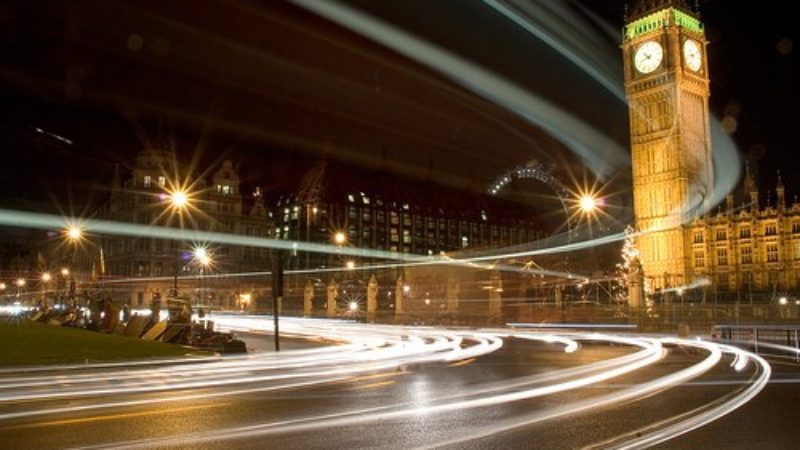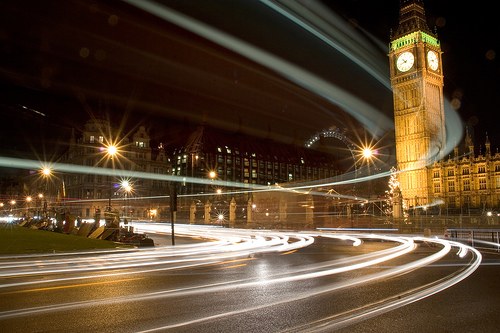

General election 2017 (seats won compared with 2015):
Conservatives: 318 (-13)
Labour: 262 (+30)
SNP: 35 (-21)
Lib Dems: 12 (+4)
DUP: 10 (+2)
Others: 13 (-2)
This result prompt two thoughts:
Labour is now 56 seats behind the Tories and 58 seats short of a minimal one-seat overall majority – almost twice the net number of additional seats won by Labour at this month’s election, which was 30. Can Labour win rather more than twice as many additional seats next time, holding on to all those it won in June this year, in order to form a majority government on a sustainable basis?
Jeremy Corbyn increased Labour’s share of the national vote to more than at any election since 2001 – 40 per cent, a 10 percentage points increase from a low base. But Theresa May increased the Tories’ share of the vote by 5.5 percentage points from a higher base to just over 42 per cent, more than at any election since 1979, when the Tories won easily with 43.9 per cent of the vote.
In recent elections, 42 per cent of the vote has generally been enough to win an election, even under first past the post. This year both parties benefited enormously from the desertions to both of them of the nearly four million who voted for UKIP in 2015, from the SNP’s loss of voters, mainly to the Tories, and from the much higher turnout than usual of voters aged under 45, many of them committed Remainers, mainly going to Labour.
Labour easily won the battle on the social media, which no doubt helped to get the under-45s out for it. It’s hard to see where any comparable windfalls for either party are going to come from at the next election.
Labour did very well in this election campaign, greatly helped by Jeremy Corbyn’s experienced campaigning skills, and far better than expected by almost anyone. But May did much better, by any standards, winning 56 more seats than Labour, only three short of an overall majority – but far worse than anyone expected. Labour supporters should not allow themselves to get carried away. Doing better than expected is not enough to win elections: and admiration for Corbyn’s campaigning prowess is not necessarily the same thing as confidence in his capacity for leading and managing his party and country, especially when the UK faces such huge and complex problems.
The manifestos
There’s a progressive case for some of the things most widely condemned in May’s often brave but reckless manifesto. The proposition that the rich should have to pay for their social care until their total wealth comes down to a figure that would still represent a generous bequest to their children, that the calculation of their wealth should include the market value of their houses, but that their houses should not have to be sold during their lifetimes, has a lot to commend itself to those of us who believe in a much more equal society.
It would reduce the size of the estates of the rich to whom it would apply, and also reduce the subsidy otherwise paid by ordinary taxpayers to the ultra-rich in order to protect their estates for their children – a regressive transfer of resources from have-nots to haves.
The most cogent objection to it, however, is that it would apply arbitrarily only to those relatively wealthy people who need residential or home care in their declining years: hence the deadly nickname of “dementia tax”. It would penalise those with dementia, or other such prolonged disability, but not those struck down by heart attacks, strokes, road accidents or even cancer. But that was not the objection to the proposal voiced quite stridently by the Labour opposition during the campaign. It’s not often that Labour champions a section of the rich against an attempt, however ham-fisted, to level some of the gross inequalities handed down from generation to generation.
Much the same applies to May’s attempt to drop the triple lock. This guarantee had provided that state pensions would always rise by at least 2.5 per cent, even if average earnings and inflation increase by less. This represents a transfer of income from working people to pensioners, regardless of need or equity. If it stems from a considered judgement that pensions have fallen too far behind earnings (as may well be the case), there are much better ways to correct the imbalance than the blunt arbitrary instrument of the triple lock.
Preserving it reflects political cowardice by those parties that support it but, because a high proportion of pensioners tend to vote, it’s deemed prudent to offer bribes to them, or at any rate it stems from a fear of their electoral revenge if the bribe is withdrawn.
The basic founding principle of universal benefits is certainly well worth rescuing from oblivion but it is questionable whether a subsidy to all old people to reduce their heating costs or provide free travel should have the same status as free health care, school education, unemployment benefit, or other collective insurance against misfortune that shares the risks across the whole community.
A Labour party that plans substantially to increase taxes on the rich to fund an enormously ambitious spending programme should be wary of attacking proposals, even if they are put forward by a Tory prime minister, that are designed to expand the options for increasing taxes on the rich or to remove obstacles to ending expenditures which have little or no economic or social justification. Labour, if it hopes eventually to climb the mountain into government (and what else is it for?), needs to be careful about what it wishes for – and about what it automatically denounces.
On the other side of the ledger, there is a little-noticed and little-discussed downside to Labour’s highly popular, vote-winning pledge to abolish payment of university tuition fees by students. This is different from the “abolition of tuition fees” because someone still has to pay them. The unspoken promise is that government – the taxpayer, who typically has limited opportunity to go to university and who earns less than those who have done so – will pay the fees but this is not only a highly regressive arrangement but also one that will restore financial and political government control over nominally independent universities and colleges. Their independence was supposedly protected in the “bad old days” of free university education by independent intermediary bodies. We don’t know how Labour would propose to square this circle. If a future Labour government assumes direct financial control of our universities, one trembles to imagine how a successor Tory government might seek to exploit it. There can be half-hidden catches in even the most obviously popular policies.




More from LabourList
Nudification apps facilitate digital sexual assault – and they should be banned
Diane Abbott suspended from Labour after defending racism comments
Labour campaign groups join forces to call for reinstatement of MPs